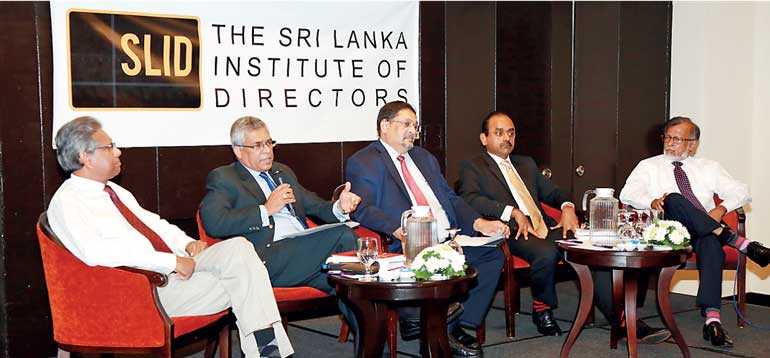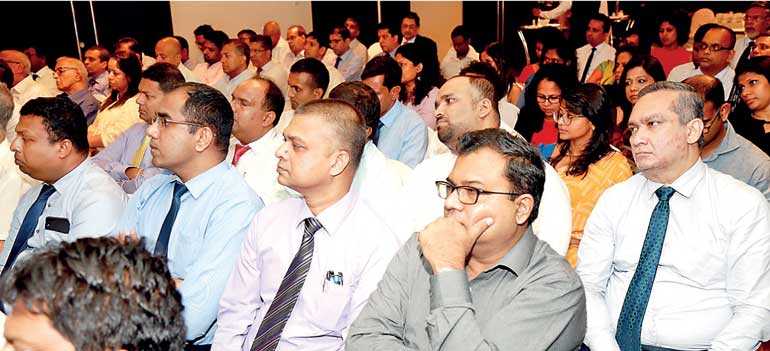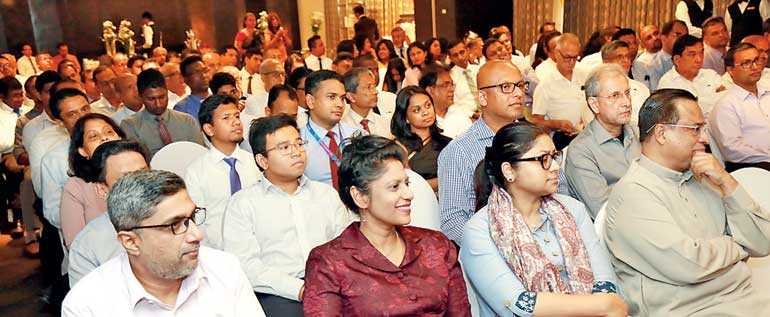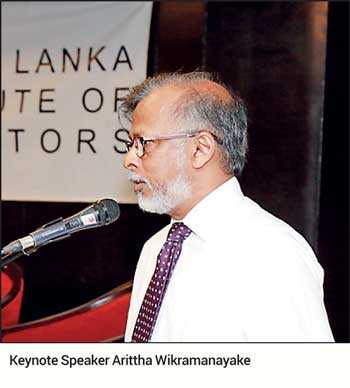Sunday Mar 01, 2026
Sunday Mar 01, 2026
Thursday, 17 October 2019 01:38 - - {{hitsCtrl.values.hits}}

The panel

A section of the audience

The Independent Directors (INED) Forum of the Sri Lanka Institute of Directors (SLID) recently held a panel discussion on companies that had failed in Sri Lanka with a view to imparting a wider understanding of the governance failures that occurred and enabling critical leanings, in order to prevent such failures in the future.
The session was open to the public and the discussions were directed at what preventive actions could be taken by directors on company Boards, particularly the role and responsibilities of independent directors. 
The Keynote Speaker, Arittha Wikramanayake (Partner, Nithya Partners), set the tone for the discussions by sharing some key features drawn from some case studies in Sri Lanka followed by an interactive panel discussion with panellists Dr. Harsha Cabral (PC) (Independent Non-Executive Chairman, Tokyo Cement (Lanka) PLC), Sujeewa Rajapaksa (Managing Partner, BDO Partners), and Ravi Abeysuriya (INED Seylan Bank PLC/HNB Assurance PLC). The session was moderated by Manil Jayesinghe (Partner, EY).
The panel discussion, along with active audience participation, moved around questions such as: What was the composition of these boards? What was the role of the INEDs on those boards? Were there any dominating personalities on the boards? Was the board of directors negligent or reckless? Were they denied critical information by the company executives? What were the roles of the board audit committee and internal audit? What are the red flags an INED should look out for? What should an INED do in these situations?
The panellists shared their individual observations on critical issues drawn from a number of local cases of corporate failure and highlighted what was lacking from the perspective of good corporate governance at the board level.
The session drew a record level of participation from both the SLID membership and the general public. By the end of the session, the key takeaways for the participants, particularly the independent directors on company boards, were:
In conclusion Jayesinghe noted that companies don’t fail overnight but over a period of time and that INEDs should watch out for indicators that the company is in trouble and address those issues or take action to protect the company.